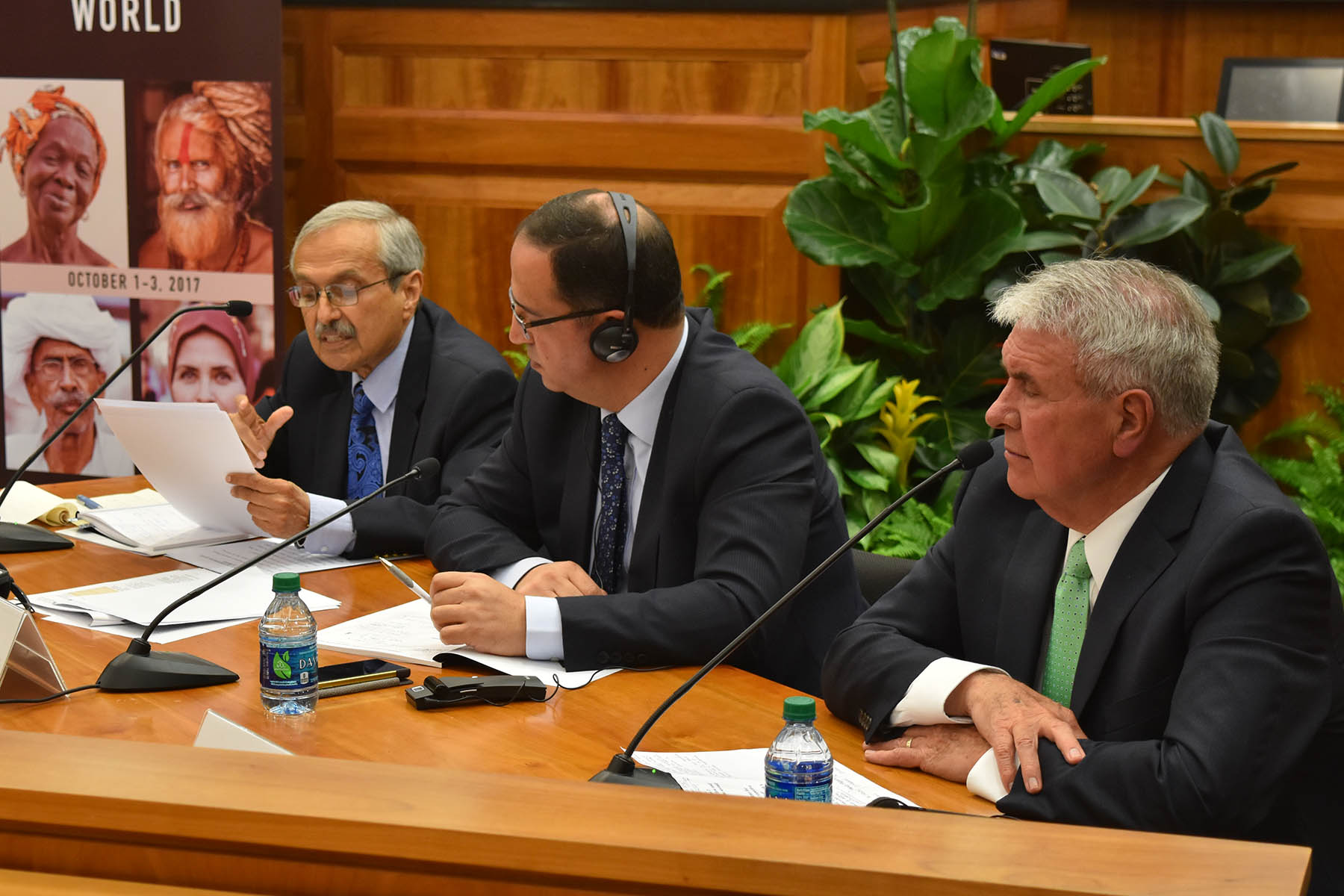Symposium 2017: Religion and Security in a Changing World: Judicial Perspectives (Monday morning session)

by Jordan Pendergrass, Editorial Associate
On the first full day of the 24th Annual International Law and Religion Symposium, multiple breakout sessions were dedicated to the topic of religion and security. One such session was dedicated to the judicial perspective. The moderator was Roger Hunt, a federal judge from Nevada, USA, and the panelists included five distinguished judges whose jurisdictions span the globe: Peter Toliken of Papua New Guinea, Carl Singh of Guyana, Ahmed Ebrahim of Zimbabwe, and Khalifeh Khaled Musa Al-Suleiman and Thaer Al-Adwan of Jordan.
All five judges validated a position that was held in the Symposium’s plenary meeting held just minutes earlier: religiosity does not give rise to security concerns in every country. Each country represented–Papua New Guinea, Guyana, Zimbabwe, and Jordan–was described as being free of serious threats by religious actors. Most judges conceded that religious friction can and has existed between private individuals and, on occasion, religious groups; however, the judges’ respective governments are pleased overall with the harmony in which various religionists live. And when private actors do violate the rights of religious people, the judges explained, there is an appropriate response by government authorities.
A common element between the presenters was the legal framework that allows minorities to exist and flourish in their respective countries. These robust religious freedom protections allow for positive expression and participation by minorities, which prevents disenfranchisement and suppression. In Guyana, the government recognizes both Muslim and Hindu holidays, indigenous people enjoy protections under the law, and no one religion is promoted by the state over another. Papua New Guinea, perhaps the most diverse country on earth, successfully accommodates religious diversity–despite its constitution acknowledging the country’s Christian heritage, traditional faiths are recognized and valued. Jordan, despite being surrounded by intense conflict, ensures that different religions practice their faiths freely and takes great effort to prevent discrimination and promote the peaceful coexistence of religions. Zimbabwe recognizes that it faces major problems in the areas of corruption, management, and the economy, but, religious strife is not counted among its problems. Following the examples of the United States and India, the constitutional protection of religious freedom prevents interference in religious affairs in Zimbabwe.